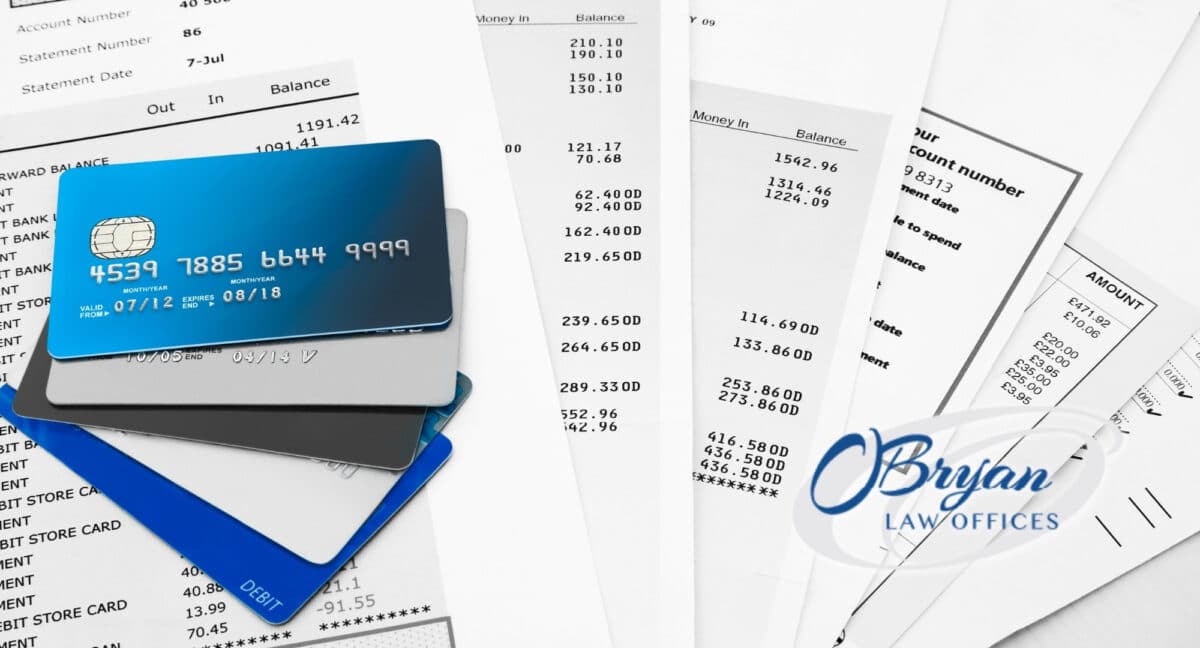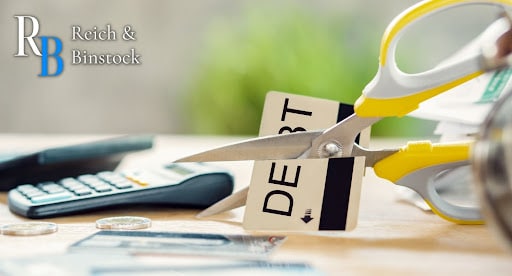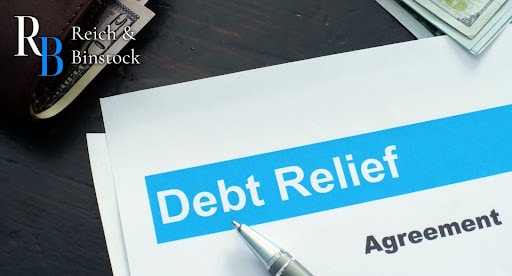Credit Card Debt Relief

Home » Louisville Bankruptcy Attorney » Benefits Of Bankruptcy » Eliminate Credit Card Debt
Credit Card Debt Attorney Kentucky

Credit card debt can quickly accumulate before you realize that you lack the means to pay back the debt. This mounting debt can lead to steep interest charges, calls from creditors, and more. When your credit card debt becomes insurmountable, the bankruptcy attorneys at O’Bryan Law Offices can explore your options. Assisting individuals and families across Kentucky and Indiana for the past 30 years, we provide the knowledgeable, tailored strategy you need to find credit card debt relief. Speak with a credit card debt attorney Kentucky with our law firm at 502-339-0222 today. We offer assistance with more than just credit card debt relief.
We also serve clients in the following areas:
- Consumer bankruptcy
- Raising credit scores
- Stopping creditor harassment
- Stopping wage garnishments
- Other financial problems
What Happens if You Are Behind on Your Credit Card Payments?
If you stop paying your credit card debts, you might face serious legal and financial hardship. No matter the reason for your late or missed payments, credit card companies may decide to take action against you. They may charge you late fees, impose higher interest rates, send your account to collections, or even serve you with a debt collection lawsuit.
On top of all this, your credit score will take a hit. If you’re facing credit card bills that you simply can not afford, we recommend understanding the stages of being delinquent on your credit card payments.
Higher Interest Rates and Fees
Generally, a credit card company will consider your payment as “late” when you reach thirty days past due. One good point to note is that late credit card payments will not show on your credit report until you hit the 30-day late mark. However, some creditors don’t report your late payments until you hit the 60-day mark.
Even before they report your lateness to the credit bureaus, you could be hit with late fees. The longer you go without paying your debts, the more fees and penalties you may face. As these fees and penalties accumulate, it may become even more difficult to pay your unsecured debts.
After you face late fees, you will likely see a penalty interest rate. Additionally, late payments tend to cause a dramatic drop in the score on your credit report. This is because payment history makes up a large portion of your credit history.
NOTE: Federal law currently does not limit the interest rates that credit card companies may charge. However, states can set limits for interest rates. In Kentucky, the legal rate of interest is 8%.
Debt Collection Actions
If you hit 90 days of delinquency, the credit card company might send your account to collections. Then, you will likely hear from debt collectors about your account. You may see a reduction in your credit limit and an increased interest rate on other credit cards.
After that, the credit card issuer might sell your account to a debt collection agency, making debt management more difficult. This is also called a charge-off. Keep in mind that a charge-off is not another term for debt forgiveness. You must still plan to pay this debt to achieve credit card debt relief. Charge-offs are very negative marks on your credit report.
The older your unpaid debts are, the more likely you are to face debt collection lawsuits. State laws place restrictions on how long debt collection agencies have to sue you. In Kentucky, collection agencies can sue up to five years after the last action on your account.
What to Do if You Are Late on Your Credit Card Payments

If you’ve racked up significant debt on your credit card account, it is possible for your situation to get much worse before seeing some debt relief. The longer you wait to pursue debt management, the fewer options you’ll have for your credit card debt incurred. Below, we outline some ways to examine your financial situation and achieve relief for your unsecured debt.
Look at Your Budget
If you have significant credit card debt or other unsecured debts, you may want to consider taking a look at your income and expenses. In other words, examine your budget. Many consumers find that there are a number of ways they can reduce their expenses for debt management. You may find that, by cutting unnecessary spending or costs, you can finally make the minimum required payments on your debts to achieve credit card debt relief.
Think about how you can adjust your budget in more ways than one. You can not only cut out expenses but also increase your income. If you’re already struggling to make ends meet, you might find financial relief in the form of a side hustle. We also recommend storing your credit cards until you have enough money to make your payments on time. This will cut down on any unnecessary credit card charge you might be tempted to make.
Call Your Credit Card Company
Another option to help achieve debt relief is calling your creditors. If you have debts related to credit card use, this means calling your credit card companies. Explaining your financial life and your attempts at debt management to creditors could at least put you in control of your situation. A creditor may be willing to waive a late fee or increased interest rate if you notify them before you miss a payment.
Engaging in good faith practices with your creditors is almost never a bad idea. You may garner some support or understanding from these creditors. This may result in receiving lower payments for a certain number of months. Either way, alerting your creditors before or shortly after missing a payment prevents creditors from mistrusting you as their debtor.
Consider Debt Consolidation
One option for debt management that is growing in popularity is debt consolidation. However, we recommend exercising caution if you decide to explore this option. Rather than working with a debt consolidation company, we recommend speaking with a debt consolidation lawyer.
At O’Bryan Law Offices, we offer a variety of legal services to help those striving for debt relief, including debt consolidation. Debt consolidation is one way a debtor can roll multiple types of secured debt and unsecured debt into one easily manageable monthly payment.
It can help with many types of debt, including the following:
- Secured debts
- Unsecured debts
- Utility bills
- Mortgage payments
- Back taxes
- Rent payments
- And other debts
Contact a Qualified Credit Counseling Agency
Contact a qualified credit counselor or credit counseling agency about your options. O’Bryan Law Offices is a qualified Kentucky credit counseling agency that can help you manage your credit card debt, bankruptcy, and many other financial complications through debt management.
Consumer credit counseling services equip consumers with educational tools to help them regain control of their finances. We will help you develop a debt management plan that works best for your specific situation. Depending on your financial situation and goals, we may or may not recommend that you file bankruptcy for debt relief. Another important consideration is finding one of the better credit counseling agencies that offer a free consultation. O’Bryan Law Offices offers a free consultation for consumers who are looking for a fresh start financially.
Consider Filing for Bankruptcy
Although it may be at the bottom of your list, a bankruptcy filing is a very real option for debt relief. In fact, there are two bankruptcy forms that may help with debt management:
- Chapter 7 Bankruptcy: Filing bankruptcy Chapter 7 will allow you to have your credit card debt discharged. However, it is highly possible that you will have to sell certain assets to pay off your creditors. A Chapter 7 bankruptcy filing will stay on your credit reports for up to 10 years.
- Chapter 13 Bankruptcy: In Chapter 13, you will develop a debt repayment plan. While it is the more expensive option, you will repay your debts and keep your assets. This will stay on your credit reports for up to seven years.
How to Get Out of Credit Card Debt
When you find yourself unable to make even minimum payments and receiving constant credit harassment calls, it may be time to consider your options.
You may have several debt relief options to relieve yourself of overwhelming credit card debt:
- File for Chapter 7 bankruptcy.
- File for Chapter 13 bankruptcy.
- Consolidate your debt.
- Pursue debt settlement.
- Pay it off.
Filing for bankruptcy may seem unsettling. However, it may be the right option to help you start fresh if you seek debt relief. We will discuss the options for debt relief available for your unique situation.
Is It Bad to Have Credit Card Debt?

Although the term “debt” has a negative connotation, there is “good debt” and “bad debt.” Debt that aids in the acquisition of appreciating assets, such as a home or a company, is typically regarded as beneficial. Debt secured by collateral that you may sell if necessary, such as a car, might be beneficial or detrimental depending on the loan conditions. However, there is one form of debt that is universally seen as bad: credit card debt. Here’s why carrying a credit card debt from month to month is a bad idea.
With APRs in the teens and twenties, credit cards are often the most costly debt you can take on, whereas education, mortgages, and personal loans typically have interest rates in the mid-single digits. This is why most individuals advise against putting major costs like medical debt on credit cards when there are many less expensive alternatives.
Credit card debt isn’t utilized to purchase items that will appreciate in value. It may be used to buy depreciating goods like furniture, clothing, and electronics, as well as consumables like food and gasoline. While there’s nothing wrong with any of these purchases, paying interest on them is needless and can considerably increase their real costs.
How to Consolidate Credit Card Debt
Debt consolidation is when you pay off existing debt with a new loan or credit card. While the term “consolidate” usually refers to combining numerous credit accounts into one, you may also consolidate a single credit card debt. Consolidating debt is most effective when the new loan or credit card has a lower interest rate than the one you’re presently paying. You can save money and even pay off your debt faster if you have a lower rate.
If you wish to combine several loan accounts, the procedure can also make repayment easier by providing you with only one monthly payment to keep track of. Also, if you have credit cards with no defined payback terms, a personal loan with a specified repayment schedule may provide you with the structure you need to keep to your repayment schedule.
How to Settle Credit Card Debt
Debt settlement is a deal between a lender and a borrower to make a significant, one-time payment toward an existing amount in exchange for the remaining debt being forgiven. For example, someone who owes $10,000 on a single credit card may approach the firm and offer to pay $5,000. The credit card company promises to waive or delete the remaining $5,000 due in exchange for this one-time payment.
While the potential of reaching a debt settlement agreement should inspire everyone to attempt, there’s a significant probability you’ll be told “no” at some point. If that’s the case, don’t just hang up and walk away. Instead, inquire with your credit card provider about lowering your card’s annual percentage rate (APR), lowering your monthly payment, or arranging a different payment plan to achieve debt relief. Often, the debt settlement companies or debt settlement agent for your credit card will feel awful about having to reject your offer and will agree to one of these alternative possibilities.
What Is a Reasonable Credit Card Debt Settlement Offer?
Many people wonder what percentage they should aim for when attempting to settle their credit card debt through debt settlement. As a debtor, you’ll want to try to settle for a small percentage of your debts. Start by offering the debt settlement companies a much lower percentage. This will give you more room to negotiate. However, many creditors will not settle for less than 50% of your unsecured debt. For example, let’s say you owe $5,000. If you settle for 50% of your debt, you will pay $2,5000. Reaching a debt settlement agreement with your creditor may be difficult. An experienced bankruptcy attorney can work with debt settlement companies to help you navigate this process.
How to Pay Off Credit Card Debt
When you’re just scraping by financially, it might seem hard to make a dent in your credit card debt. The fact is that if you don’t have any additional cash to put toward your credit card debt each month, you’ll have to either reduce your spending or increase your income to make any headway towards debt relief. However, with some planning and determination, you can make changes to your budget that will give you more flexibility and allow you to begin paying down your credit cards.
When you’re ready to modify your spending patterns and get rid of credit card debt, a budget may be quite beneficial. Look for strategies to create extra money that you can use to pay off debt if you’re currently on a tight budget or would prefer to earn more than spend less. You might be able to determine your best budgeting technique, learn how to bargain with creditors, or apply for economic hardship programs to decrease some of your costs with the help of trustworthy financial professionals.
Should I File Bankruptcy for Credit Card Debt?

As we stated previously, filing bankruptcy on credit cards is a very real option. When you file for bankruptcy, you essentially get a second chance with your debts. However, it’s important to understand that not everyone qualifies to file Chapter 7 bankruptcy or Chapter 13 bankruptcy.
We recommend speaking with an experienced Kentucky bankruptcy lawyer to determine which bankruptcy chapter is right for you. Contact O’Bryan Law Offices and schedule a free consultation with our consumer bankruptcy attorneys.
Qualifications for Filing Bankruptcy for Credit Card Debt
Keep in mind that filing bankruptcy has certain requirements. If you want to file bankruptcy, you must meet the standards for the chapter you want to file. Before you file for bankruptcy on credit cards, you must prove that you’re about to handle your own debts.
If you intend to file Chapter 7, you must pass a means test. The Chapter 7 means test considers two things. Firstly, you will pass the test if your income from the previous six months is below the median income for a family of the same size in your state. If you cannot pass the means test, you cannot file Chapter 7 bankruptcy.
If you can’t pass the means test, there is another consideration. Do you have enough leftover income to work on paying down your debt after you deduct essential expenses? If you do have enough, you will be dismissed from Chapter 7 by the bankruptcy court. Then, you will file Chapter 13 bankruptcy.
However, in Chapter 13, your unsecured debts cannot exceed $419,275, and your secured debts cannot exceed $1.257 million. If you are unsure of what to do next with your bankruptcy case, we recommend speaking with our professional bankruptcy lawyers.
Will a Chapter 7 Bankruptcy Help Me Get Credit Card Debt Relief?
Most or all unsecured, nonpriority debt will be discharged (wiped away) in a Chapter 7 bankruptcy. Medical bills, personal loans, and the majority of credit card debt are examples of unsecured, non-priority debt that can be discharged in bankruptcy. Child support and some tax obligations are examples of non-dischargeable priority debts that you will be liable for paying.
You must give up your nonexempt property, which is anything that isn’t protected by a bankruptcy exemption, in exchange. Your non-exempt property will be sold by the Chapter 7 bankruptcy trustee, and the money will be distributed to your creditors.
Can I File Chapter 7 Bankruptcy Without an Attorney?
While it is possible to file bankruptcy without an attorney (or pro se), we do not recommend it. Filing bankruptcy of any chapter requires a decent understanding of bankruptcy law, as well as careful and meticulous preparation. If you make a mistake in your filing, you may not be able to receive your bankruptcy discharge.
The best way to ensure that you properly file your bankruptcy petition is to work with a law firm that has considerable experience with bankruptcy proceedings. When you work with O’Bryan Law Offices, you receive all the benefits of working with an experienced attorney and none of the risks of handling it alone.
Will a Chapter 13 Bankruptcy Help Me Get Credit Card Debt Relief?
In a Chapter 13 bankruptcy, you repay your creditors in full or in part over the course of three to five years under a repayment plan to achieve debt relief. Only a part of your unsecured, non-priority debt, such as credit card debt, is generally covered by the plan.
The amount you’ll pay is determined by your disposable income as well as the value of your nonexempt property (you keep all of your property in Chapter 13, but you must pay for the nonexempt portion). Throughout your plan, you’ll pay the bigger of the two sums.
Most Chapter 13 filers pay just a tiny portion of their credit card and other unsecured obligations, and the remaining credit card amount is dismissed at the conclusion of the payback period.
Exceptions to Credit Card Debt Relief in Bankruptcy

In certain situations, filing for Chapter 7 will not be enough to wipe away your credit card debt. The discharge of your credit card debt may be challenged by your creditor at any moment. If you win, the debt will not be discharged by the court, and you will be responsible for paying it when your case is over.
The credit card lender may, in exceptional circumstances, obtain a security interest in some of your property as part of the credit card agreement. Check your contract and receipt for collateral such as jewelry, gadgets, beds, furniture, and major appliances. If the loan isn’t unsecured, you’ll be able to pay it off, but the creditor will still have a claim on the property used to secure the debt. Find out more about secured real estate.
Contact a Louisville Bankruptcy Attorney Today
If you need help either restructuring or building back your finances to maintain credit card debt relief, O’Bryan Law Offices are here for you. With the help of an experienced Louisville bankruptcy attorney, we’ll get you back on track to being debt-free. For more information about credit card debt relief or to schedule your free consultation, please call our office at 502-339-0222 today. We can also counsel you on how to deal with a charge-off on your account, if applicable.





